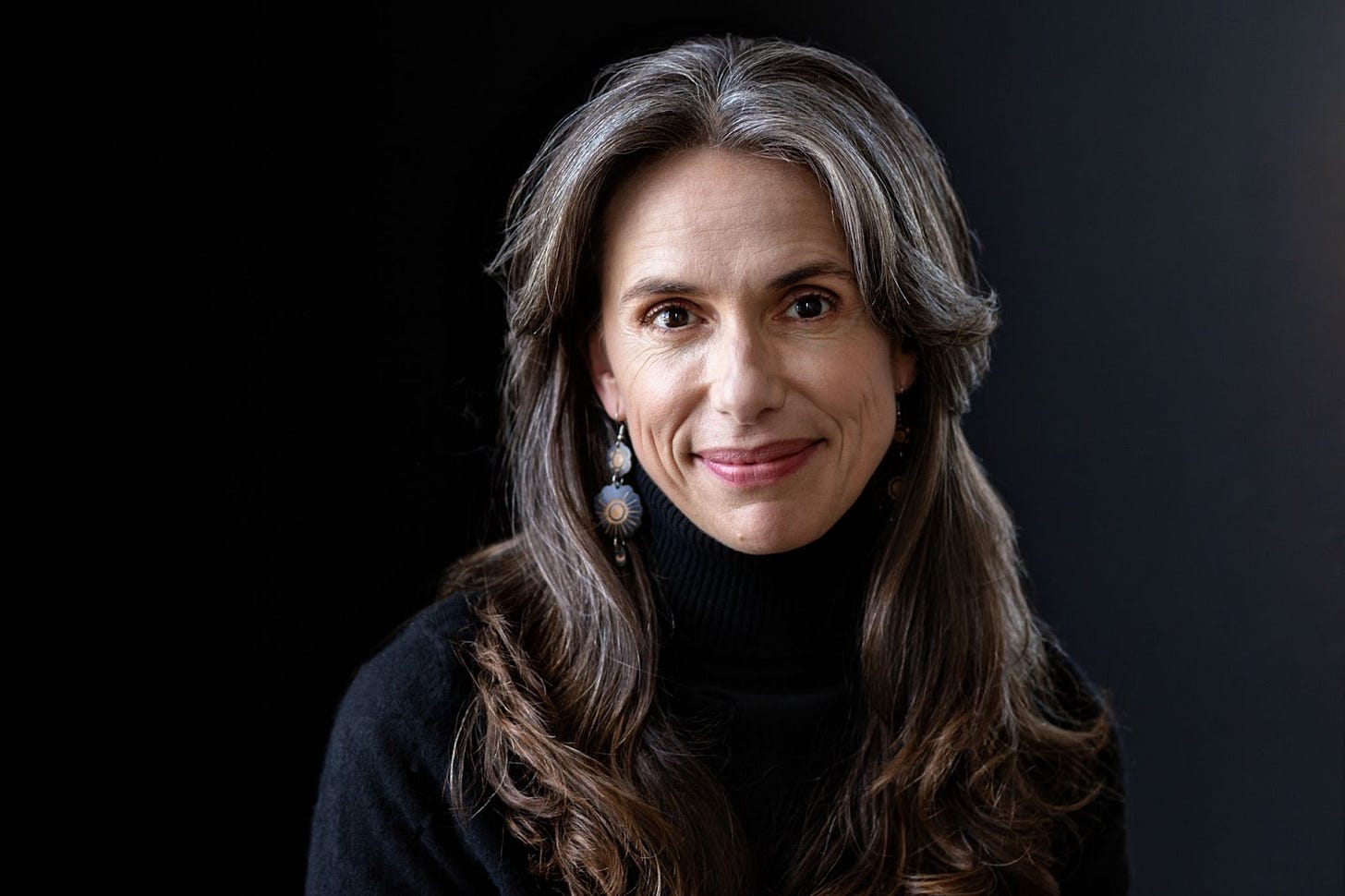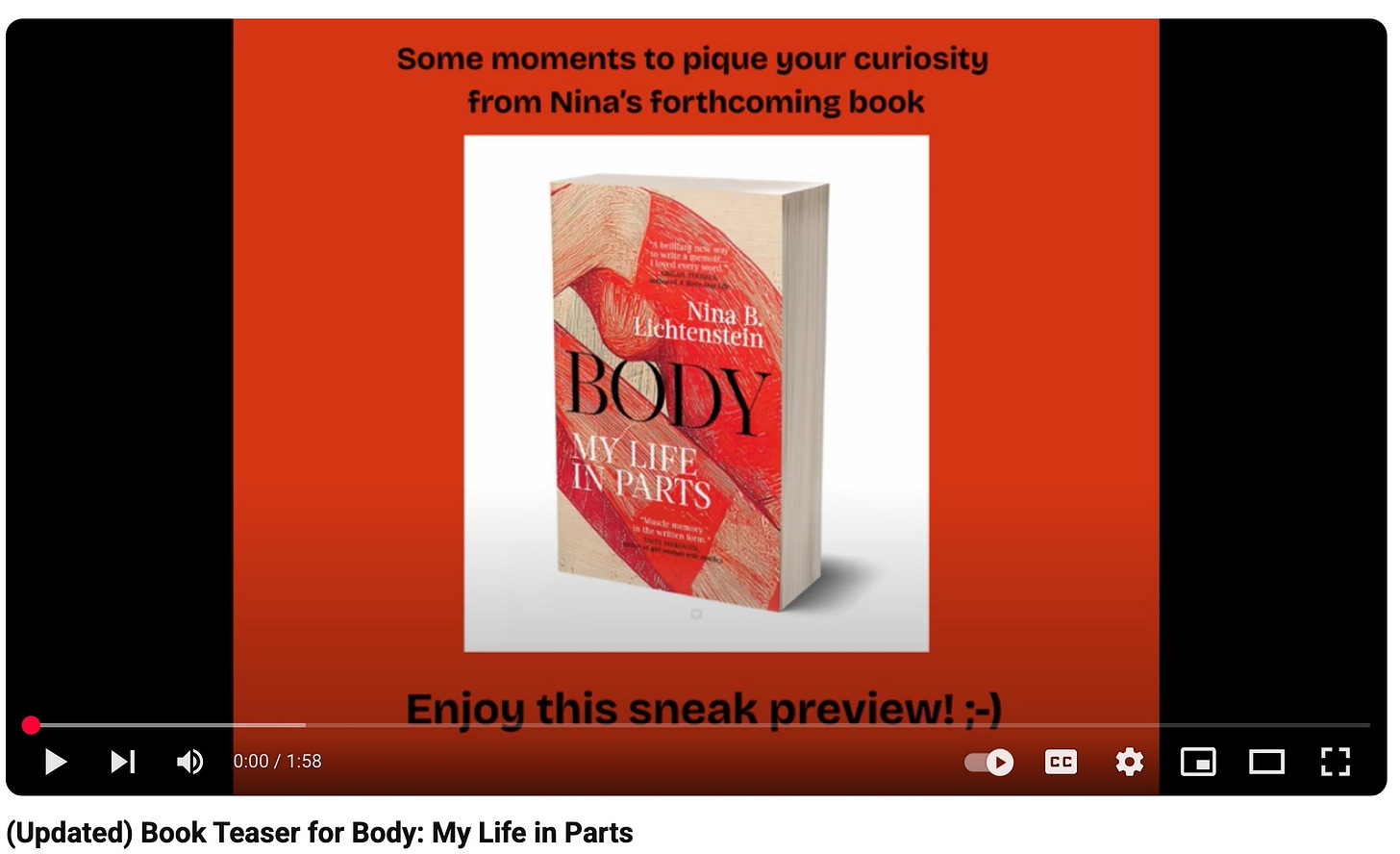Introduction by Kate Lewis
We often think of growth as something we can visually mark. The height of a beloved child, etched onto a doorframe. The bright buds of tulips, their pink and red blooms heralding spring. But frequently, growth is intangible, invisible. We sometimes can’t quite place exactly when or why an important shift occurred, and for so many of us writing creative nonfiction, these unseen transformations are what linger in our thoughts and our work. We know we’ve changed, we know the world has. But how to explain?
Melenie Freedom Flynn’s lovely, lyrical piece “Gravity” is a testament to the transformation inherent in this unseen and often unmarked growth. Sometimes we’re the only ones who know how far we’ve come. Sometimes we’re the only ones who can celebrate it. In rhythmic prose that whirls us through her younger years, Flynn’s piece reminds us that who we were is not who we must be, and that change – and growth – can come about in the most surprising of ways.
And now, our chosen piece for “GROWTH.”
“Gravity” by Melenie Freedom Flynn
This is the part that I’m not going to tell you — the part I’m going to leave out, the years I’m going to fly over like a jetliner sailing above all the cities it won’t be landing in. I’m going to skip the summer the hormones appeared, storming my body, knives drawn, hijacking the kid I was. I wish I found books, not boys. But boys I found, one by one — boys with cold hands and eyes I took for maps, boys wearing too much of their dads’ cologne, boys with beer breath sweet and sour, boys too old for me, boys with cars I shouldn’t have been in, boys with parents’ bedrooms and no parents home, boys handing me coffee cups filled with tequila, half-smoked joints, hand-rolled cigarettes. One drove me to a clinic in Southeast Portland, another picked me up the day I dropped out of high school at the end of my sophomore year, flunking every class except creative writing. There was the boy with stringy blond hair who ran his fingers across the bump on my head from fainting after snorting lines of crystal meth with Mom in the basement of the house on Hemlock Street — I heard my head hit the floor, Mom’s scream, then black stars. Your worried face appeared over me, a blue halo of smoke encircling it. You didn’t know what Mom and I were doing in the basement; you didn’t know all the nights I slipped out the front door after you’d fallen asleep, drawn into a whirlpool dark as the North Atlantic: dimly lit apartments, broken white lines on highways blurring together, the glint of a gun drawn in moonlight by a vacant-eyed man. But then a day comes and there’s a kind boy, mossy eyes that dance when he looks at me, a different kind of hunger in his gaze. He reads me poems he writes in his notebook, reads me Shakespeare on rain-streaked nights in his dad’s car at the dark end of street; he teaches me how to drive and sing out loud, to click the turn signal, to check over my shoulder. I follow him to an audition for the community college play and they give me the part, then they give me another part, and another, then theatre is the gravity that pulls me to college, to graduate school, the roar of the dark whirlpool growing fainter in the distance, while all along the way I keep giving my heart out to boys, to men, to women, falling in love as easily as downing a glass of cool water in July. But this is the part I’m going to skip over — no daughter wants to talk with her father about these kinds of things.
Author Spotlight
Kate: I’d love to talk about the “you” in this piece, which we discover in the final line refers to the narrator’s father. Would you share a bit about how the structure of this piece and its use of direct address came about? Were there other drafts where it was structured differently?
Melenie: This piece grew out of a memoir I am working on called Broken White Lines Flying. In early drafts of the manuscript, the narrator speaks directly to her father, which narrowed the subject matter explored — as there are many things I wouldn’t be comfortable or drawn to share with my father. As I approached my fiftieth birthday, the same age my father was when I was born, adolescent and teenage ghosts of me returned, demanding answers to questions I’d long buried. In “Gravity,” I experimented with a way to explore topics like coming-of-age sexuality and drug use through the lens of the narrator sharing things she won’t tell her father.
The process of writing “Gravity” gave me the perspective I needed for a revision of my memoir manuscript, which is now not directly spoken to my father, which frees me up to say things I had not been saying.
Kate: You’ve worked extensively in theatre, and this piece has such a lovely rhythmic repetition throughout, particularly through the repeated “boys.” Every time we encounter the word, it deepens our understanding of the narrator and the ‘dark whirlpool’ drawing her in. I’d love to hear how your work on the stage influences your writing - and vice versa!
Melenie: Thank you so much for this, and for asking about the theatre, which deeply informs my creative life. In particular, I read early drafts out loud — to myself, my husband Jay, my cat Louie, my close friends, and my writing group. This reading aloud is central to how I discover the voice. Once the voice comes into focus, I follow its lead.
The other aspect directly related to my theatre background is the importance of a writing community. I have a wonderful generative writing group I meet with every Wednesday evening. We gather in one of our living rooms, share prompts, and set the timer for 45 minutes to write. Afterward, we go around the circle and read to one another. The act of reading brand-new work aloud and hearing others read is deeply creative for me. I wrote “Gravity” on one of these Wednesday evenings, and as I read it to the group, I knew it contained the voice that had been missing in my manuscript.
As the author Terry Tempest Williams says, “A book is created in community.” Community is the foundation of my writing life. When I return alone to the page, I carry the strength and heart of my community with me.
Kate: This issue is themed around GROWTH, and “Gravity” is such a beautiful, poignant example of the unexpected ways we grow in life, and the impact that arts can make on people. What advice has helped you grow the most as an artist?
Melenie: Written on an index card tacked above my desk says: LET. When I was a young theatre student, I had an extraordinary voice teacher, Fran Bennett. She was a regal, wildly talented Shakespearian actor, and she locked the door the moment her class began, so if you were foolish enough to arrive late, you had to knock. We were all terrified and in awe of her. One day, as we went through our voice exercises, Fran emerged from behind her piano and bellowed in her resounding voice, “Melenie, never forget this: your job as an artist is to let, let, let — not to force, force, force. Do you understand this crucial difference, darling? When you do, that is when the work begins.” That was 25 years ago. I carry Fran’s voice with me each day as I continue discovering how to use mine. It always comes back to letting, not forcing, and the delicate balance of knowing which is which.
What Our Co-Editors Had To Say
Casey: I’m a fan of writing in second person and was instantly taken by the overall structure in “Gravity.” This extended use of apophasis—mentioning a subject by claiming not to mention it—is so effective here. It created in me a sense of urgency, needing to learn not only what the unspeakable things were (it isn’t long before we begin to construct an image of the narrator’s early life) and why she won’t speak of them, but, maybe even more compelling, who she’s addressing. The use of rich language, repetition, multiple clauses, and compelling scene work kept me reading breathlessly until the end.
Nina: Oh, the secrets we keep from our parents, or, as we learn in this piece, from one parent, while the other is our partner in crime. Is it to protect them, or ourselves, or a bond we perceive as tender, delicate, or fragile? I loved to be reminded of how effective—redemptive, even—it can be to write directly to another person with the use of “you,” and also of how much more intimate the writing becomes using this narrative device. Melenie’s piece also reminds me of how complicated coming of age can be, and of the risks we take to become who we are. It is as scary as it is thrilling.
Leanne: The idea that it’s possible to rewrite our own story, leaving parts out, is compelling not just for the person we’re in conversation with, but for ourselves. We can choose what we highlight, choose what we allow to fade into the background, choose how we define ourselves based on the facts of our past. In this way, growth is shot through with power.
Cindy: I love the way the writer brackets her story between the opening and closing lines. This is the part that I’m not going to tell you releases a flood of memories and admissions which pull the reader into the gravity of her redemption. A gorgeously written narrative of carefully guarded secrets which no daughter wants to tell her father.
Author Bio
MELENIE FREEDOM FLYNN is a writer, actor, and teacher. Her writing has been supported by fellowships from MacDowell, the Elizabeth George Foundation, Massachusetts Cultural Council, and the Edith Wharton & Straw Dog Writers Guild Writing Residency. Melenie’s essay “Message from Your Inmate” won the annual nonfiction contest at Vela Magazine and her recent work can be seen in Provincetown Arts Magazine. Melenie leads writing workshops and provides coaching and editorial services for writers. She lives in Easthampton, Massachusetts.
Substack: @meleniefreedomflynn
Facebook: melenie.flynn
IG: @melenieflynn
Submission Calls
Enjoyed Melenie’s essay? YOU could be our next featured author!
From May 1-15, please submit pieces on the theme of HOME.
From June 1-15, please submit pieces on the theme of RESISTANCE.
From July 1-15, please submit pieces on the theme of HOPE.
From August 1-15, please submit pieces on the theme of COMMUNITY.
Before submitting, refer to our Submission Guidelines page.
What’s Going On With Us
Editor Kate Lewis recently published a poem with THE NATURE OF OUR TIMES, which will be included in their upcoming anthology The Nature of Our Times: Poems on America’s Lands, Waters, Wildlife, and Other Natural Wonders. Read her work, “The Final Oyster,” here.
There’s more love for Casey’s book! ”All That Matters is Love”: A Review of Casey Mulligan Walsh’s The Full Catastrophe written by Diane Gottlieb was published in Split Lip Magazine on April 15, 2025.
We’re excited for Nina's memoir, Body: My Life in Parts (where each chapter is named for a body part that she uses as portals into memory and story) to arrive May 27th, and you can enjoy a sneak preview in this video (or click on the photo below). To pre-order, head over to Nina’s website for all the options.







This is amazing. Thank you
This gorgeous piece of writing is a master class that I will return to. I'm writing a short piece titled 'If I Could Have a Do-Over' and wondering out loud what I'd be brave enough to share. "Gravity" has the depth I hope to convey.